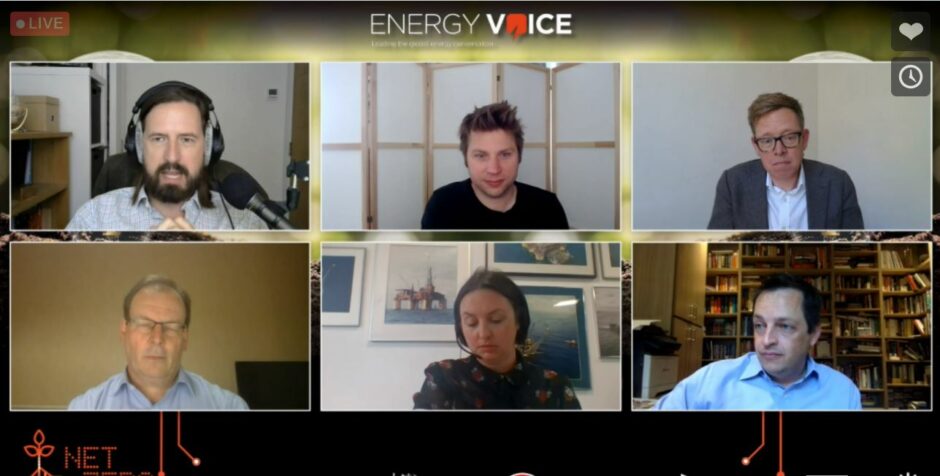
Collaborating on the collection and use of data is a “challenging” but “necessary” step for the energy sector to reach net zero, an industry event has heard.
Shell, the Oil and Gas Authority, Snowflake, OGTC and Accenture were on the panel of the Net Zero Data session hosted by Energy Voice on Wednesday.
Dan Jeavons, VP of Digital Innovation and Computational Science at Shell, discussed the need to focus efforts “where it’s really going to matter” for companies like his managing the energy transition.
Mr Jeavons spoke of embedding digital tech to “transform” existing facilities, such as use of artificial intelligence at Shell LNG gas plants to cut flaring, as well as designing the next generation of the energy system “such that we can run at net zero”.
Tackling the transition will also mean open innovation, he said, looking beyond just this industry for collaboration.
It was a view shared by fellow panellist Jan-Willem Jannink, managing director of Accenture’s Industry X digital technology offering.
He said: “This industry is at an inflection point triggered by climate change and the energy transition and a lot of new innovations will be needed.
“The question is are these innovations coming from within industry, or is this exactly where you need the open part of innovation where you can also make sure that you benefit from innovation from other industries?”
Stephen Ashley, head of offshore energy 4.0 at OGTC in Aberdeen, was also on the panel, highlighting net zero opportunities for data in areas including decommissioning, health and safety and robotics.
However an issue of “trust” on collaboration also needs to be overcome, he said.
“Collaborating around data is challenging, we’ve been trying to facilitate it through standards approaches as an industry for a very long time.
“There are psychological barriers, you might say, to sharing data which we’ve got to get over and now we’ve got the burning bridge for us to look at how we can do that.”
Looking ahead to Cop26 in November, and the industry’s target of net zero by 2050, there was consensus that more work is needed.
Nic Granger, director of corporate at the Oil and Gas Authority, relayed that open data systems are required in order successfully integrate low-carbon technologies in the North Sea.
She also highlighted that the right types of datasets, of the right quality for machine learing, rather than volume, is key.
“We’ve started releasing flaring and venting data, collecting that from industry and making it available through our platforms”, Ms Granger said.
“There is a huge amount of different types data that we could be collecting but I don’t think it’s about volume, it’s about targeting the right data types and making sure it is usable across different platforms.”
Rounding off the panel was Christian Kleinerman, VP of products at Snowflake, a firm which boasts thousands of organisations using its data cloud plartform.
One of the benefits of the approach is avoiding duplication of resources, data sets and strain on computing infrastructure.
Mr Kleinerman said: “We are highly-convicted of the importance of an infrastructure that helps reduce the footprint, helps reduce copies and enables collaboration of data, and then of course the value of data itself in driving efficiencies. That’s how we frame our contribution towards net zero goals.”
Recommended for you

